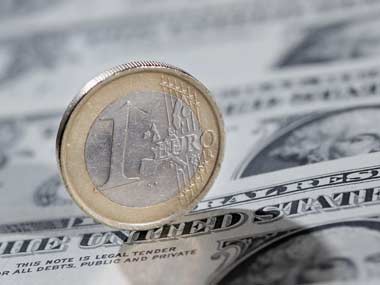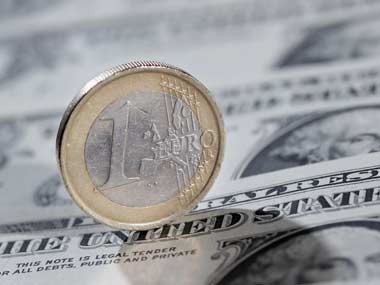New York: Europe faces another year of dismal economic performance in 2012 that will weigh on global growth, but investors are optimistic that the US and emerging markets will fire up the world economy.
According to an Associated Press survey of leading economists released on Tuesday the US economy will grow faster in 2012 - if it isn’t knocked off track by Europe. The economists expected the US economy to grow 2.4 percent next year. In 2011, the US economy likely grew less than 2 percent.
On the other hand, economists expect the European economy to shrink 0.5 percent in 2011 - and fall into a recession.
Most economists base their optimistic assumptions on the hope that the eurozone’s sovereign debt crisis will not boil over into a new global economic crisis. Dean Maki, chief US economist at Barclays Capital, said a “big threat” is the risk that Europe’s debt crisis will trigger a worldwide credit freeze like the one that hit Wall Street in 2008.
Adjusting to Oil Prices above $101
With Europe quiet, the price of crude oil shot up on Tuesday to $101.34 per barrel in New York on the back of consumer confidence. The economists surveyed by the Associated Press said the US economy is strong enough to withstand higher oil prices.
Rising oil prices and a falling rupee, will however, spell double trouble for the Indian economy, which depends on imports for about 70 percent of its total fuel needs. Oil prices are up 10 percent from a year ago and threaten to strangle India’s spluttering growth.
[caption id=“attachment_167176” align=“alignleft” width=“380” caption=“Economists expect the European economy to shrink 0.5 percent in 2011 - and fall into a recession.Reuters”]
 [/caption]
[/caption]
Despite the recent petrol price hikes, oil companies say they are still losing Rs 5 on every litre of petrol sold, and double that on every litre of diesel. _The Economic Times_reported that state-run oil marketing firms Indian Oil, Bharat Petroleum and Hindustan Petroleum were bleeding as they were absorbing the price rises. “The industry which lost money at the rate of Rs 235 crore per day during the second quarter, is losing Rs 388 crore every day in the second fortnight of December,” reported the financial daily.
The recent hike in the retail prices of petrol, cooking gas and kerosene notwithstanding, pump prices in India can only go up.
Building a portfolio with BRICS
The high-octane Brazilian, Russian, Indian and Chinese (BRIC) economies, helped the world from getting sucked into a deeper slowdown after the 2008 financial Armageddon. Three years and multiple interest rate hikes later, these countries are battling a pronounced slowdown. Average economic growth in the BRIC countries will decelerate to 6.1 percent next year from a high of 9.7 percent in 2007, according to the International Monetary Fund.
Still, emerging-market stocks will probably outperform US equities next year as central banks in developing countries cut interest rates to stimulate growth, said James Paulsen, the chief investment strategist at Wells Capital Management in Minneapolis.
“I like the emerging markets better than anything right now,” Paulsen said in an interview on Bloomberg Television. “Most of these emerging-market policy officials are turning to easing policies.”
The Bank of America Merrill Lynch Survey of Fund Managers, which polled 190 institutional investors with assets of $608 billion, found investors liked US and emerging market equities.
“The gap between US and European profit expectations is currently at a record! Within equities the US and emerging markets remain the favoured regions, while Europe continues to be deeply unloved. Sector positioning remains defensive with healthcare the world’s most popular sector, followed by tech and staples while the banks remain totally out of favour,” said Michael Hartnett, chief global equity strategist, Bank of America Merrill Lynch.
The Reserve Bank of India is expected to pause monetary tightening by mid-2012 after raising interest rates 13 times since 2010 to fight stubborn inflation. China lowered banks’ reserve requirements in November for the first time since 2008, while forwards contracts in Russia show traders are betting on interest-rate cuts in the next 12 months.
“We think equities will stay in a big, fat trading range next year, but expect roughly 10 percent upside from current levels,” said Hartnett, who expected Beijing, Washington and New Delhi to embrace accommodative monetary policies next year.
)